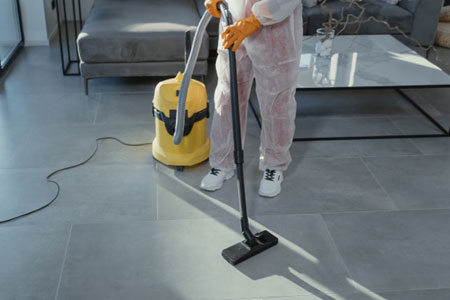Water damage can strike unexpectedly, leaving homeowners scrambling. At Carpet Water Damage Brisbane, we’ve seen it all and are here to help. This guide will walk you through the essential steps to take if your carpet falls victim to water damage. But before our experts arrive, there are a few things you can do. This article will guide you through the emergency steps to take if you face water damage.
Stop The Water Flow
First and foremost, if the water is still pouring in, you need to put a stop to it. It could be as simple as turning off a tap or calling a plumber. If the water damage is due to flooding or heavy rainfall, your safety comes first. Head to the Bureau of Meteorology for current weather updates.
Turn Off Electricity
Water and electricity don’t mix. If it’s safe to do so, switch off power in the affected area. If you’re unsure, it’s always best to call an electrician or check the Australian Government’s advice on electricity safety.
Remove Excess Water
Use towels, mops, or wet vacuums to remove as much water as you can. The quicker you act, the better chance you have of saving your carpet.
Move Furniture
Water can damage not just your carpet but also the furniture on it. Move your furniture to a dry area to prevent any further damage.
Call Professionals
Once you’ve done all you can, it’s time to call in the experts from Carpet Water Damage Brisbane to ensure the job’s done right.
Document the Damage
For insurance purposes, take photos of the damage. Make sure you cover all angles to help your claim. For more on this, check out the Insurance Council of Australia.
Stay Out of the Area
To ensure a safe environment and to let professionals do their job, it’s best to stay out of the affected area.
Understanding Water Damage
Water damage to carpets can be more than just a soggy inconvenience. Prolonged exposure to moisture can deteriorate the quality of your carpet, leading to health concerns and structural issues. Let’s dive deeper into the world of water damage, the repercussions, and the preventive measures one can take.
The Science Behind Water Damage
Water, as gentle and life-giving as it is, can be invasive. The capillary action causes water to be absorbed into porous materials, like carpets. The longer the water remains, the greater the risk of irreversible damage, decay, and mould growth.
The Hidden Dangers
- Mould and Mildew Growth
As we touched on briefly earlier, the most immediate concern with wet carpets is mould. Mould spores thrive in damp environments. Once they find such an environment, they multiply rapidly, leading to that unmistakable mouldy smell. More critically, they can cause health issues, especially in individuals with asthma or allergies.
- Structural Damage
Your carpet isn’t the only thing at risk. Water can seep further into the underlay and even the subfloor. Over time, this can weaken the floor structures, making them spongy and unstable.
- Unwelcome Guests
Damp environments can attract pests. Insects like silverfish thrive in damp conditions and can infest your home if water damage isn’t addressed quickly.
Insurance & Water Damage
It’s essential to be clear about what your home insurance covers. Not all policies automatically cover water damage, especially if it’s due to negligence (like not fixing a known leak) or “Acts of God” like floods. Always double-check your policy and consider additional coverage if necessary. For a comprehensive understanding, the Australian Securities and Investments Commission offers resources on understanding insurance.
Prevention is Better Than Cure
While our focus has been on what to do after water damage, understanding how to prevent such incidents can be a real lifesaver.
- Regular Maintenance
Routine checks around the home can prevent many instances of water damage. Check for leaky faucets, broken tiles, faulty sealants, or any other signs of potential water intrusion. Also, consider regular cleaning and maintenance of your carpets.
- Weather-proofing
In areas prone to heavy rainfall, flooding, or other weather extremes, proactive measures can make a difference. Ensure that your home has proper drainage, and consider investing in sandbags or other flood-prevention tools.
- Quality Over Quantity
When choosing carpets or underlays, consider those with water-resistant properties or those designed for high-humidity areas. They might cost a bit more initially but think of them as an insurance policy for your home.
Addressing The Issue
Let’s say you’ve discovered water damage, but it’s been a while, perhaps you’ve been away on holiday or the damage was in an infrequently used space. What now?
- Assessment
Understanding the extent of the damage is crucial. Sometimes, what might seem like a minor issue on the surface can be more extensive underneath. This is where professionals from Carpet Water Damage Brisbane can assist.
- Drying and Cleaning
After the initial emergency steps, the drying process must be thorough. Professionals might use industrial fans, dehumidifiers, and other equipment to ensure no moisture remains.
Moreover, cleaning is vital. This isn’t just about the visible stains but about treating the carpet to prevent mould growth and ensuring it’s hygienically safe.
- Repair or Replace?
Depending on the extent of the damage, you might have to make a tough choice. Sometimes, cleaning and drying might restore the carpet to a usable state. Other times, the damage might be too extensive, requiring a complete replacement. Consulting with Carpet Water Damage Brisbane can give you clarity on the best course of action.
Conclusion
Water damage can be overwhelming, but with the right steps, you can minimise the impact. Remember, Carpet Water Damage Brisbane is here to help. Get in touch with our agency today for prompt, professional service.
Frequently Asked Questions
Water damage can result from flooding, leaks, or spills. Regular maintenance can help prevent some causes.
Wet carpets can lead to mould growth, damage to subfloors, and even damage to walls.
Yes, especially if mould grows. This can lead to respiratory problems and allergies.
Professionals use various equipment and methods to clean and dry. Check out our blog for a deep dive into the process.
Depends on the damage extent. Minor damage can often be restored, but severe cases may require replacement.
Various reasons: pipe leaks, flooding, appliance malfunctions, or even heavy rainfall.




